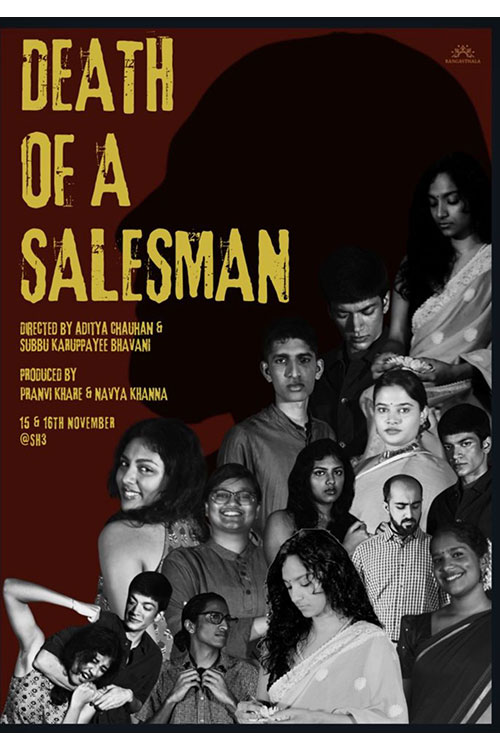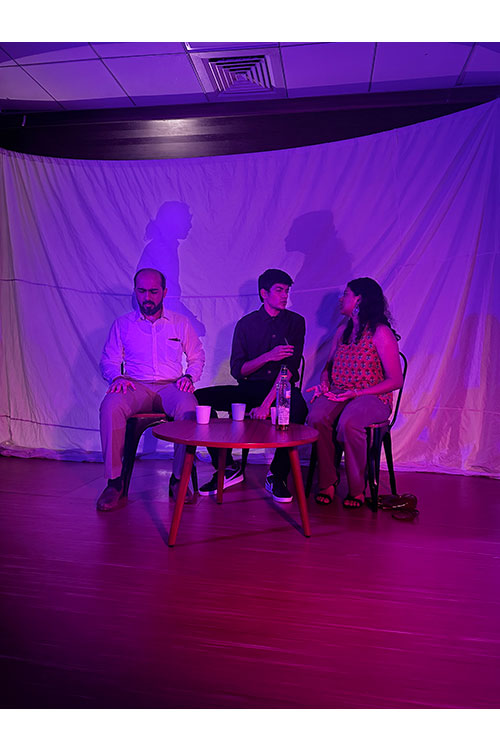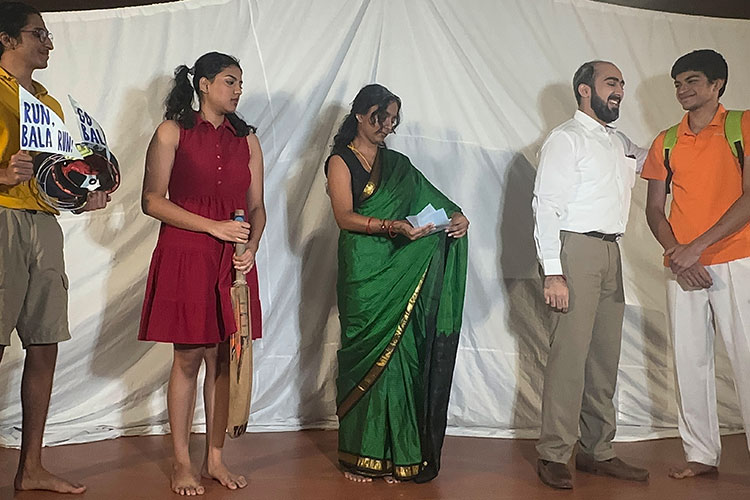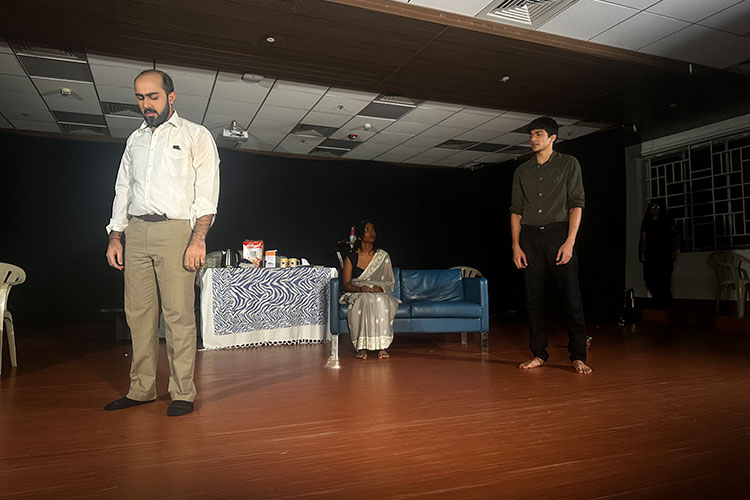The SH3 on campus is packed and people are still pouring in. Sitting here in the front row, I can’t help but feel overwhelmed with awe and pride. This show, which had been in the works for almost six months, was finally coming to life. Over the summer break, Rangasthala, the Theatre Club of SIAS, decided to take on Arthur Miller’s Death of a Salesman, and now, here it was — the first Tamil play at Krea, completely translated and adapted by students.
The Death of a Salesman is a play that provides a commentary on the endless pursuit of “success” in the lives of the lower middle-class people in the 20th and 21st centuries. It was originally set in 1940’s America as a commentary on the American Dream. Rangasthala’s adaptation was set in Kanchipuram, Tamil Nadu, and focused on Vicky Loganathan, a saree seller, his family and the final twenty-four hours of his life. The play explored themes of strained family relations, mental health and ambition. It showed how the meaning of success changes through generations and individuals.


While The Death of a Salesman is about the American dream, it is applicable everywhere because, at its core, it’s about how there is a lot of pressure in our society to be well-liked and successful. So even although we performed it in Tamil, the play still applies to all societies and doesn’t lose its universal appeal.
Team work is dream work
It was a long process, from selecting directors, producers, and scriptwriters during the summer break to finally performing the show on November 15 and 16. And yes, it was undoubtedly a long process, but it paid off in the end. All the actors, whether new or veteran, acted beautifully. It was truly magical to see the cast perform, and the amount of effort everyone put into the production was evident. We had actors who don’t speak Tamil perform in the language.
The entire crew, too, put in a great deal of effort, whether it be the quick saree changes, perfectly timed and planned lights and sounds, or the fluid set management and while this all seems momentary, the crew had been working since August to make this possible. Something unique about this particular production was the fact that we played with lights and shadows to create a puppet show, truly highlighting the feelings of the actors and the themes of confusion and anxiety in the play.



Lights. Camera. Passion.
Beyond the technical aspects of the play, this was the dream production for many people involved, so seeing it unfold so magically was a dream come true for a lot of us. Sitting there, watching it all unfold, I couldn’t help but feel a deep sense of pride — not just for the production but for the people behind it. Seeing how every single person involved had poured their heart and soul into this production was.humbling. The friendships and bonds we made through this production will be something we all will cherish forever.
And then there was the audience. Hearing their reactions during the play — gasps, laughter, tears, the silence during tense moments — was electrifying. It felt like they were fully immersed, travelling with us through Vicky Loganathan’s story. When we stepped off stage both nights, their applause and heartfelt feedback made all the effort worthwhile. Hearing them talk about how the story and its themes resonated, how they noticed the finer production details and how moved they were was deeply gratifying. It gave us a sense of accomplishment and validated every hour of effort we’d put into this production.
Our adaptation was directed by Aditya Chauhan and Subbu Karuppayee Bhavani and produced by Navya Khanna and Pranvi Khare. The show days were 15 and 16 November 2024 at SH3.
A report by Pranvi Khare, Cohort of 2027, SIAS